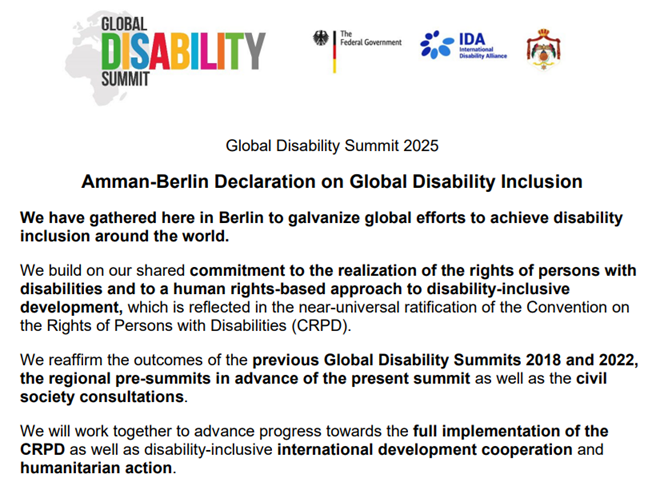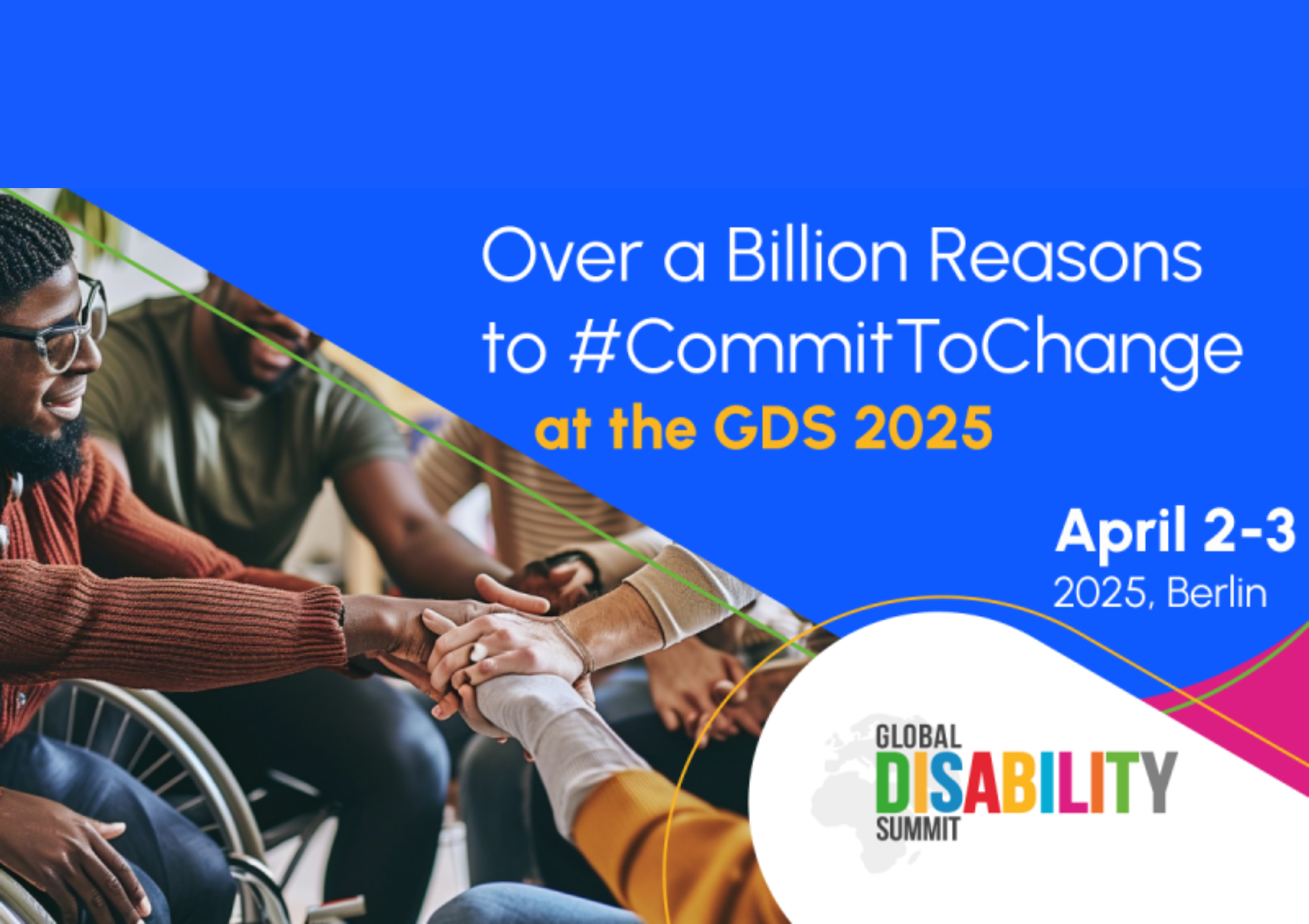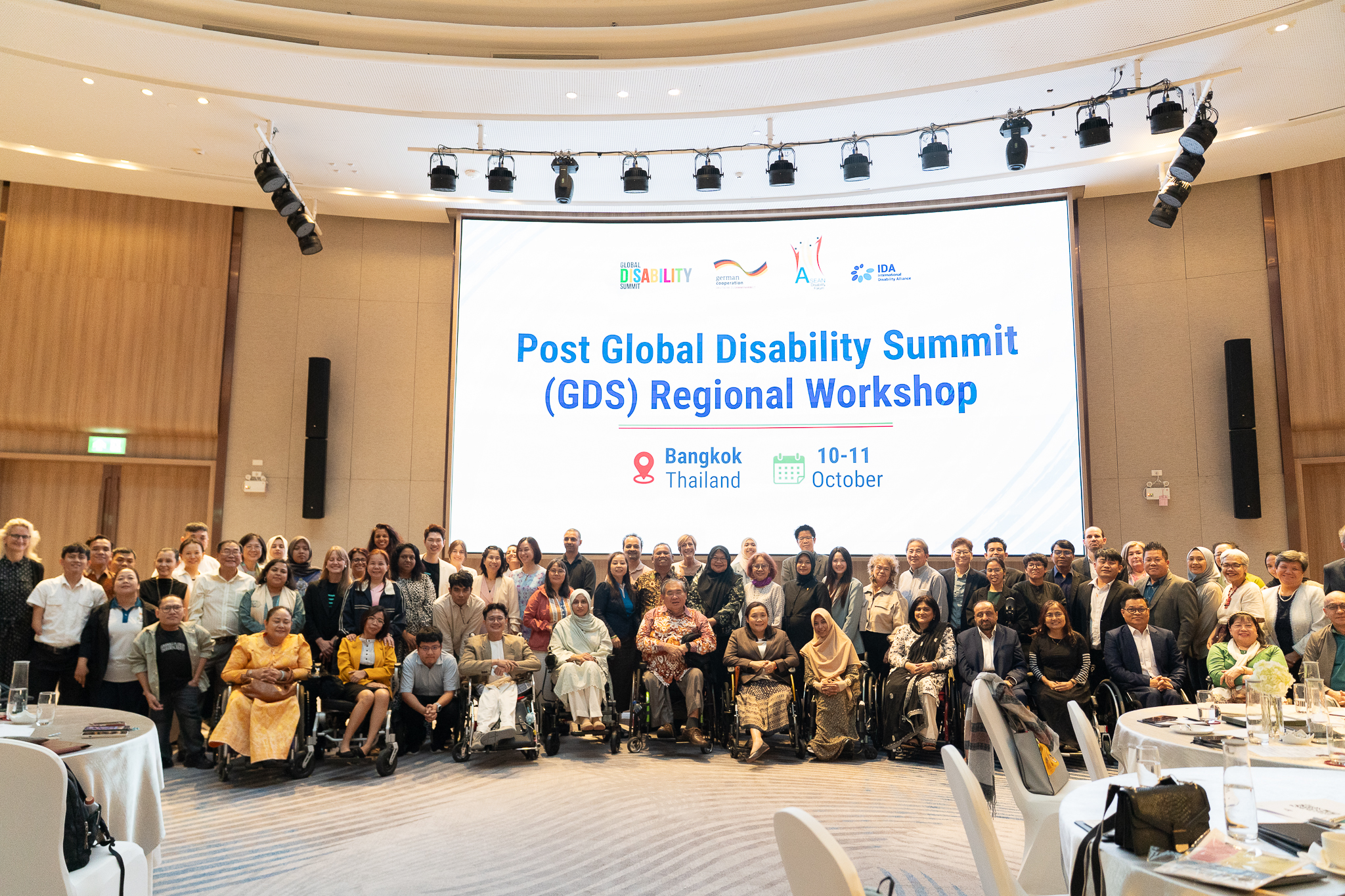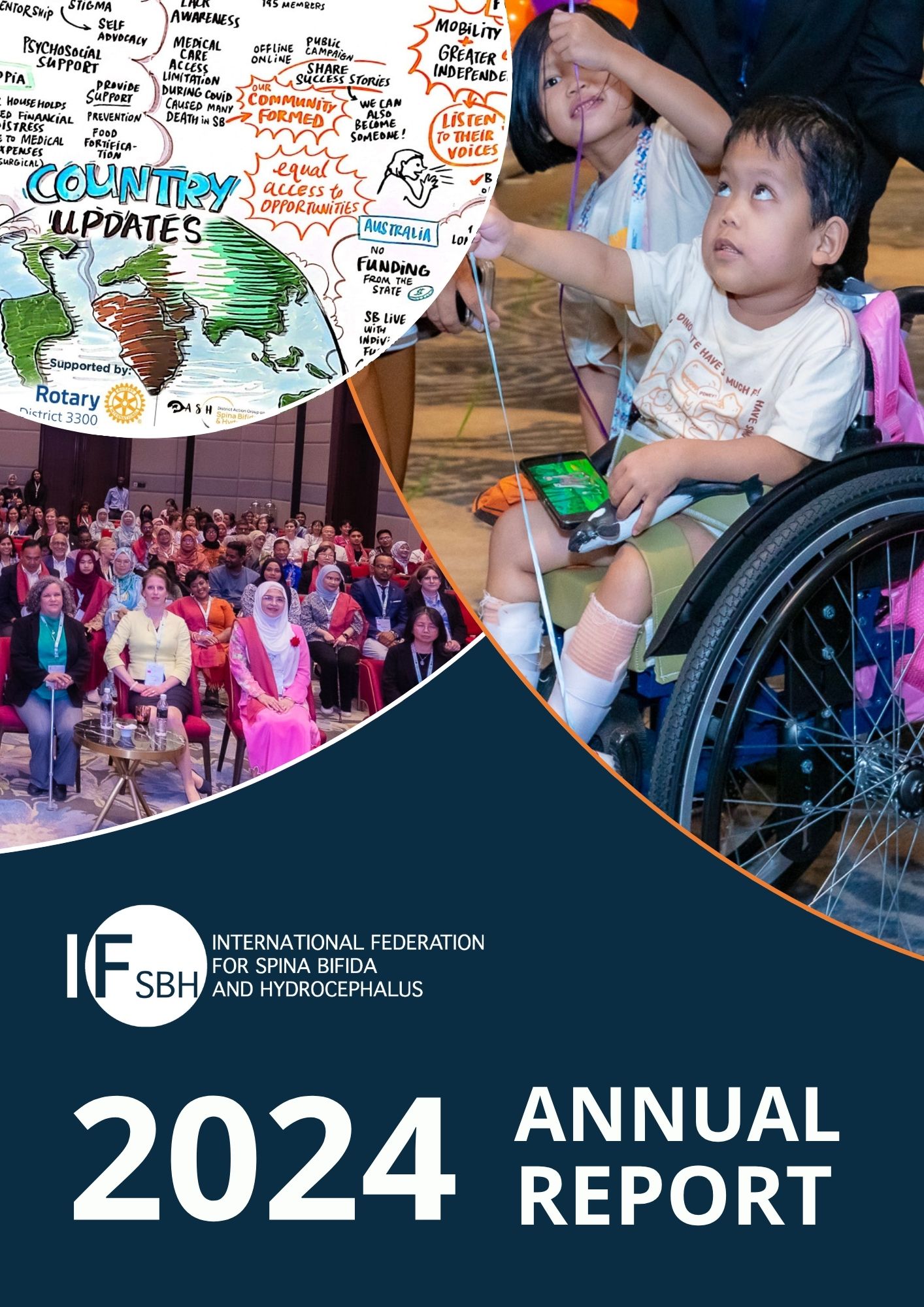The Global Disability Summit 2025 Concludes: IF Launches the Kuala Lumpur Declaration and Supports the Adoption of the Amman-Berlin Declaration on Global Disability Inclusion
The Global Disability Summit (GDS), established in 2017, is a global initiative focused on improving the lives of persons with disabilities, particularly in the Global South. It brings together stakeholders from around the world to promote disability-inclusive development and humanitarian action. GDS aims to bridge the gap between disability inclusion and development cooperation, and it goes beyond a biennial event, involving ongoing advocacy and mobilization of the disability rights movement and its allies.
The last edition of the GDS took place in Berlin from 2 to 3 April 2025, bringing together governments, civil society organisations, and international stakeholders to strengthen the inclusion of persons with disabilities in global development and humanitarian cooperation.
Global Commitments
The International Federation for Spina Bifida and Hydrocephalus actively participated in the Summit, contributing to the promotion of a real OPD-led approach through the meaningful participation of Organisations of Persons with Disabilities (OPDs).
The OPDs are critical as they provide direct representation and advocacy for persons with disabilities. They ensure that the voices and experiences of persons with disabilities are at the forefront of discussions, decision-making, and policy formulation. OPDs bring authenticity and credibility to the dialogue, as they are driven by persons with disabilities themselves.
The Global Disability Summit presents an extraordinary opportunity to further enhance the visibility of the Kuala Lumpur Declaration and the commitments it promotes. We have recognised that this globally significant event provides the ideal platform to amplify our message and reinforce the global commitment to preventing Neural Tube Defects and ensuring access to multidisciplinary care for individuals with Spina Bifida and Hydrocephalus.
In this article, you can read about two important outcomes of the GDS25: The Amman-Berlin Declaration on Global Disability Inclusion and the Kuala Lumpur Declaration resulting from the 30th International Conference for Spina Bifida and Hydrocephalus.
The Amman-Berlin Declaration
One of the most significant outcomes of the Summit was the adoption of the Amman-Berlin Declaration on Global Disability Inclusion, endorsed by numerous countries and institutes across the world. The Declaration highlights the importance of meaningful OPD participation and promotes impactful, sustainable partnerships for inclusive development and humanitarian action.
- Read the Amman-Berlin Declaration here: Amman-Berlin Declaration PDF
- Check whether your country is included in the Endorsement List here: Endorsement List – Amman-Berlin Declaration
- More information is available at: Global Disability Summit – Amman-Berlin Declaration

the Kuala Lumpur Declaration
During GDS25, IF officially launched the Kuala Lumpur Declaration, a historical document resulting from the 30th International Conference for Spina Bifida and Hydrocephalus. Developed with contributions from experts, healthcare professionals, members of the SBH community, and families worldwide, the Declaration calls for global action to adopt a human rights-based approach to the prevention of Neural Tube Defects (NTDs); and ensure continuous, coordinated, and inclusive multidisciplinary care throughout the life course of individuals with Spina Bifida and Hydrocephalus (SBH), from childhood to adulthood.
Download the Kuala Lumpur Declaration and its co-signatories here


These core commitments were reflected in the priorities and positions IF brought to the GDS, reinforcing the need for comprehensive, inclusive, and lifelong care approaches within global disability and health agendas.
Read our Kuala Lumpur Declaration and our strong commitments at the Global Disability Summit 2025 here: Strong commitments at the Global Disability Summit 2025.





